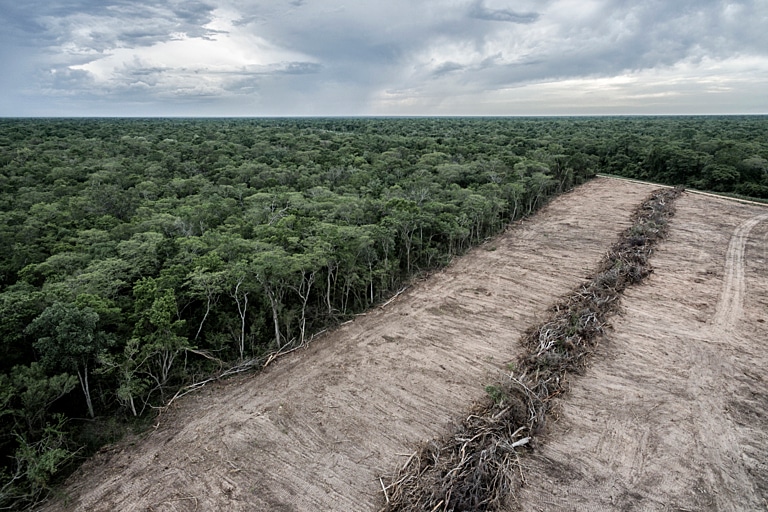Last month, a group of EU member states asked Brussels to delay the highly-contested anti-deforestation law amid months-long farmers protests across Europe.
—
The controversial European Union’s anti-deforestation law will come into force at the end of 2024 as initially planned, its environment commissioner said during a visit to a cocoa-producing cooperative in Ivory Coast on Sunday.
Last month, an Austria-led coalition of 20 of the 27 EU member states called for a revision of the law proposed by the European Commission in 2021 and formally adopted last year, which aims to crack down on commodities linked to deforestation and forest degradation for agricultural expansion, targeting beef, soy, coffee, cocoa, rubber and other agricultural products sold within the EU. They argued that the legislation – the first of its kind in the world – would hurt European farmers, who are also subject to the new rules.
More on the topic: Explainer: Why Are European Farmers Protesting?
In an exclusive, upcoming interview with Earth.Org, European Greens leader Bas Eickhout called the recent U-turn on the policy of some European countries “ridiculous,” and a “failure of the Commission.”
“This is what you get when you don’t have a long-term vision. The credibility of Europe is at stake. What we have been trying to do with this deforestation law is to make clear that these European industries should not only do green policies within Europe but they also have a global responsibility… they need to be credible in the rest of the world,” he said.
Nations producing these commodities and importing them into the EU – including Colombia, Indonesia, and Brazil – also criticised the new rules, saying they are burdensome and costly and arguing that products are often hard to trace given that supply chains often span multiple countries.
A lot is at stake, especially for the cocoa production industry, most of which is located in Ivory Coast and Ghana, which together contribute 60% to the global output. The industry is already struggling from price volatility, with cocoa prices surging to an all-time high of $10,080 per metric ton last month.
Speaking with Reuters on Sunday, European Environment Commissioner Virginijus Sinkevicius said Ivory Coast – which in March 2023 launched a national sustainable cocoa strategy (SNCD), setting a target to increase forest cover rate from 11% in 2015 to 20% by 2030 – is now “well prepared” to align with the new EU requirements.
Sinkevicius also explained that the costs of bringing production systems into compliance will be only partially covered by the EU – which has already allocated a budget support scheme worth €50 million (US$54 million) to Ivory Coast and is finalising a €150 million reforestation loan for the nation – with operators importing into the bloc expected to cover the rest.
Featured image: Marcelo Perez del Carpio/Climate Visuals Countdown
This story is funded by readers like you
Our non-profit newsroom provides climate coverage free of charge and advertising. Your one-off or monthly donations play a crucial role in supporting our operations, expanding our reach, and maintaining our editorial independence.
About EO | Mission Statement | Impact & Reach | Write for us


















